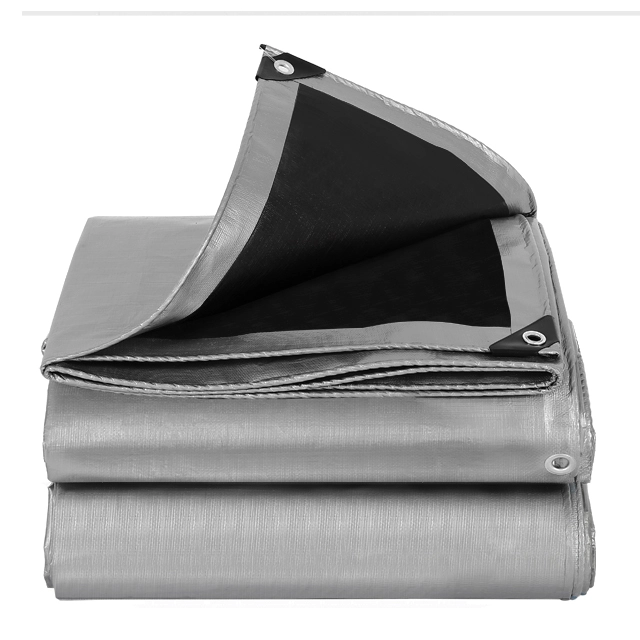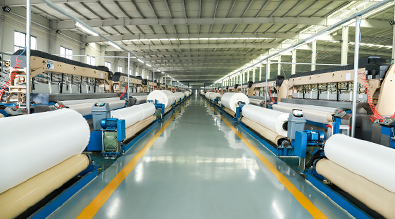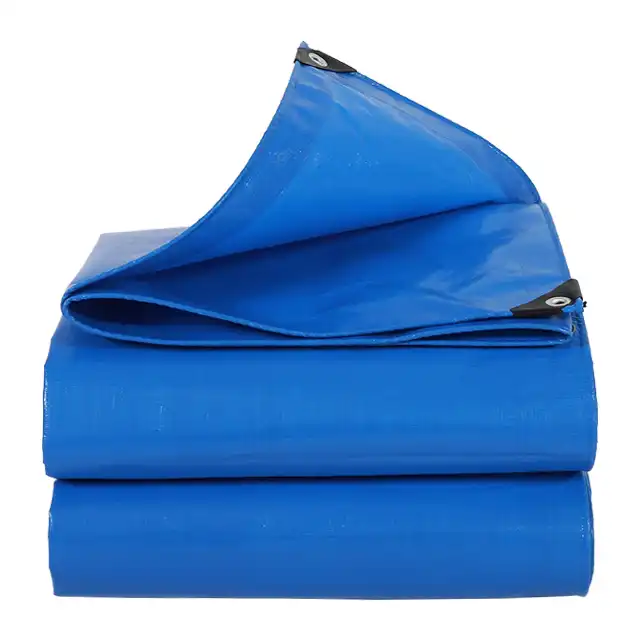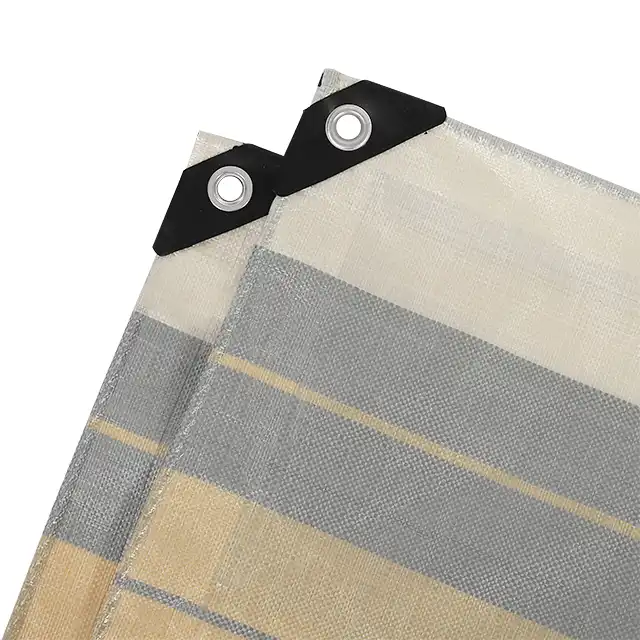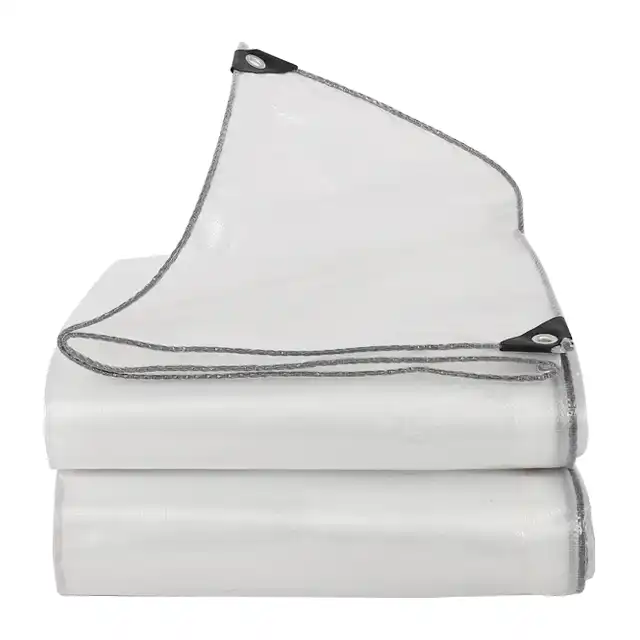Cleaning a huge cultivate farm tarp requires appropriate arrangement, suitable cleaning arrangements, and efficient washing methods to keep up its defensive qualities. PE coverings, commonly utilized for agrarian applications, advantage from customary support utilizing gentle cleansers, delicate brushes, and intensive washing to evacuate soil, flotsam and jetsam, and natural matter. Appropriate cleaning amplifies the life expectancy of your cultivate farm tarp while protecting its waterproof coating and UV assurance capabilities, guaranteeing continued solid execution in demanding agricultural situations.
Understanding Farm Tarps
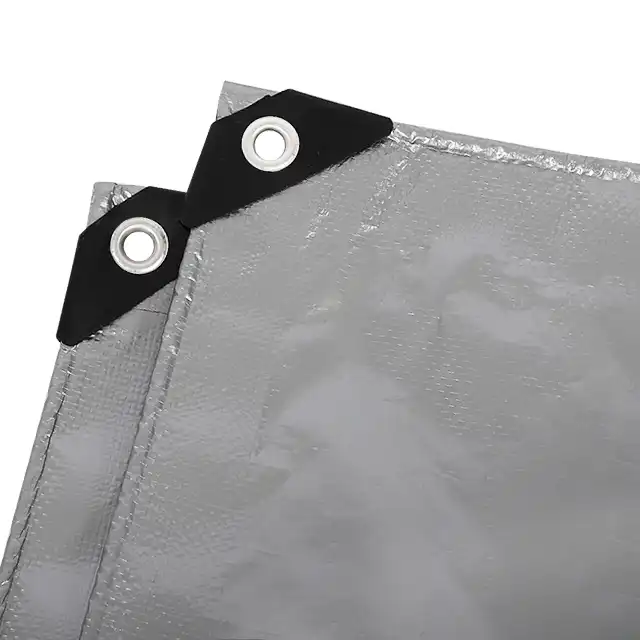
Modern agricultural operations rely heavily on protective covering systems such as farm tarp to safeguard crops, equipment, and livestock from environmental hazards. These versatile protective sheets serve multiple functions across farming operations, from protecting harvested grain to covering machinery during off-seasons. The effectiveness of these protective systems depends largely on their material composition and construction quality. Agricultural protective covers, including farm tarps, offer substantial benefits, including weather protection, moisture control, and temperature regulation. Studies indicate that properly maintained protective covers can reduce crop losses by up to 30% during adverse weather conditions. Understanding the specific requirements of your agricultural operation helps determine the most suitable protective covering solution. The durability and performance of these protective systems directly correlate with proper maintenance practices. Regular cleaning removes accumulated debris, prevents material degradation, and maintains the structural integrity essential for long-term agricultural use. Neglecting proper maintenance can result in premature failure and costly replacements.
Types of Farm Tarps and Their Materials
Agrarian defensive covers are made from different materials, each advertising unmistakable preferences for particular applications. Polyethylene-based covers rule the showcase due to their great adjust of strength, affordability, and execution characteristics. These covers utilize high-density polyethylene strands woven into vigorous textures and covered for upgraded protection.
Here are the key fabric sorts commonly utilized in agrarian applications:
-
High-Density Polyethylene (HDPE): Offers prevalent tear resistance and UV security, making it perfect for long-term open air introduction. The firmly woven structure gives amazing dimensional solidity and climate resistance, suitable for covering huge agricultural areas.
-
Canvas Materials: Conventional canvas gives breathability and normal resistance to certain natural components, despite the fact that it requires more visit support and treatment to maintain water resistance compared to engineered alternatives.
-
Composite Materials: Progressed composite covers combine different fabric layers to accomplish particular execution characteristics, such as improved fire resistance or specialized chemical resistance for specific agricultural applications.
These fabric varieties address distinctive agrarian needs while providing dependable security over assorted cultivating operations. The determination ought to consider components such as the introduction term, climate conditions, and particular defensive requirements. Weight details ordinarily extend from 65gsm to 280gsm, with heavier materials giving upgraded toughness for demanding applications. The work check, changing from 10x10 to 14x14, impacts both quality and adaptability characteristics. UV treatment levels between 1% and 7% guarantee satisfactory assurance against harmful ultraviolet radiation that can cause fabric degradation.
Step-by-Step Guide to Cleaning a Farm Tarp
Effective cleaning of large agricultural covers requires systematic preparation and proper execution. The cleaning process should address both surface contamination and embedded debris while preserving the material's protective coatings and structural integrity. Essential cleaning supplies include mild detergent solutions, soft-bristled brushes, garden hoses with adjustable spray nozzles, and adequate workspace for handling large covers. Safety equipment, such as non-slip footwear and protective gloves, ensures safe handling during the cleaning process.
The comprehensive cleaning process involves these critical steps:
- Initial Assessment and Preparation: Examine the cover for damage, heavy soiling, or embedded debris. Remove loose materials and identify areas requiring special attention. Ensure adequate workspace and proper drainage for cleaning operations.
- Pre-Treatment of Stained Areas: Apply concentrated cleaning solution to heavily soiled sections, allowing sufficient contact time for effective soil penetration. Use soft brushes to gently agitate stubborn deposits without damaging the material surface.
- Systematic Washing Technique: Begin washing from the cleanest sections, progressively working toward the more heavily soiled areas. Use overlapping washing patterns to ensure complete coverage and consistent cleaning results.
- Thorough Rinsing Process: Remove all cleaning residues using clean water, ensuring complete elimination of soap deposits that could attract future soil accumulation or compromise material performance.
These systematic cleaning procedures ensure thorough soil removal while maintaining the protective characteristics essential for continued agricultural use of the farm tarp. Proper technique execution prevents damage to waterproof coatings and extends overall service life. Temperature considerations affect cleaning effectiveness, with warm water typically providing better soil dissolution than cold water. However, excessive heat can damage certain material coatings, making moderate temperatures optimal for most cleaning applications.
Maintenance Tips for Prolonging Farm Tarp Lifespan
Proactive upkeep essentially extends the beneficial life of agricultural protective covers while keeping up their execution characteristics. Customary assessment plans recognize potential issues, which sometimes recently create exorbitant disappointments, empowering opportune repairs that protect fabric integrity. Review conventions ought to look at fabric condition, securing frameworks, and by and large basic keenness. Common issues include UV degradation, mechanical wear, and coating weakening that can compromise defensive execution. Early discovery permits preventive measures that expand usable life. Capacity hones play a significant part in fabric conservation during non-use periods. Legitimate capacity procedures incorporate careful cleaning some time recently capacity, total drying to prevent mold growth, and assurance from rodents and sharp objects that might cause harm. Climate-controlled capacity situations give ideal conservation conditions. Repair techniques address minor harm, some sometimes recently it engenders into major disappointments. Fix units outlined for polyethylene materials give viable, brief repairs for small punctures or tears. Proficient repair services handle more extensive harm that requires specialized methods or equipment. The waterproof characteristics of quality rural covers stem from specialized coating applications that require cautious upkeep. Unforgiving cleaning chemicals or harsh procedures can compromise these coatings, decreasing water resistance and generally defensive execution.
Farm Tarp Solutions from Shengde
Shengde Plastic Company represents two decades of expertise in manufacturing premium agricultural protective covers, establishing industry leadership through consistent quality and innovation. Our comprehensive manufacturing capabilities include advanced extrusion systems, precision weaving equipment, and specialized coating applications that produce superior agricultural protection products. Our manufacturing excellence stems from substantial investment in advanced production technology and quality control systems. The facility operates over 30 high-technology extrusion machines, 400+ Korea-imported automatic water-jet looms, and multiple large-scale coating machines that ensure consistent product quality and performance characteristics.
Here are the distinctive advantages that set our products apart in the agricultural market:
- Superior Material Engineering: Our covers utilize high-density, tightly woven polyethylene fibers with dual-sided lamination, providing exceptional durability and weather resistance. The specialized coating process ensures 100% waterproof performance with enhanced tear resistance.
- Customization Capabilities: We accommodate specific dimensional requirements up to 5.1 meters in width without joints, enabling seamless coverage for large agricultural applications. Custom color options and weight specifications from 65gsm to 280gsm meet diverse operational needs.
- Quality Assurance: ISO 9001:2015 certification and comprehensive testing protocols ensure consistent product performance. Our quality monitoring systems oversee every production stage, guaranteeing reliable performance in demanding agricultural environments.
These manufacturing advantages translate into agricultural covers and farm tarps that withstand challenging environmental conditions while maintaining protective performance throughout extended service periods. Our commitment to quality has earned partnerships with international organizations, including UNHCR, IOM, ICRC, and UNICEF. Our products feature enhanced UV protection ranging from 1% to 7% treatment levels, ensuring resistance to solar degradation that commonly affects agricultural covers. The anti-freezing and arctic flexibility characteristics enable year-round performance across diverse climate conditions.
Frequently Asked Questions
Q1: How often should I clean my agricultural protective cover?
A: Cleaning frequency depends on environmental conditions and usage patterns, but generally, every 3-6 months provides optimal maintenance. Heavy-use applications or exposure to organic materials may require more frequent cleaning to prevent degradation and maintain protective performance.
Q2: Can I use pressure washers for cleaning large agricultural covers?
A: Pressure washing is acceptable with proper technique and moderate pressure settings. Maintain adequate distance from the material surface and use wide spray patterns to prevent coating damage. Always test pressure settings on inconspicuous areas before full-scale cleaning.
Q3: What cleaning products should I avoid when maintaining PE tarpaulins?
A: Avoid bleach, strong acids, petroleum-based solvents, and abrasive cleaners that can damage protective coatings. Stick to mild detergents and specialized tarpaulin cleaners designed for polyethylene materials to preserve waterproof characteristics and material integrity.
Choose Shengde as Your Trusted Farm Tarp Manufacturer
Agricultural operations require reliable protective solutions that deliver consistent performance across demanding environmental conditions. Shengde combines two decades of manufacturing expertise with advanced production capabilities to provide superior agricultural covers that exceed industry standards. Our extensive product range accommodates diverse agricultural applications while maintaining the quality standards that have established our reputation across international markets. Our commitment to excellence extends beyond product manufacturing to comprehensive customer support and technical guidance. Whether you need standard protective covers or custom solutions for specialized applications, our experienced team provides expert consultation to ensure optimal product selection for your specific requirements. The combination of advanced manufacturing technology, rigorous quality control, and responsive customer service makes Shengde the preferred farm tarp supplier for agricultural operations worldwide. Experience the difference that professional-grade agricultural covers can make for your farming operation. Contact us at info@shengdetarp.com to discuss your protective covering requirements and discover how our expertise can enhance your agricultural productivity and equipment protection.
Conclusion
Appropriate support of rural defensive covers guarantees solid execution and extended benefit life over demanding cultivating applications. The precise cleaning approach sketched out here, combined with customary assessment and fitting capacity hones, maximizes the defensive capabilities of quality PE coverings and farm tarp. Understanding fabric characteristics and support necessities empowers ranchers to make educated choices around defensive covering arrangements. Contributing to premium agrarian covers from built-up producers like Shengde gives long-term value through predominant strength and execution characteristics. The combination of appropriate upkeep, hones, and quality items makes a dependable defensive framework that shields agricultural investments while decreasing operational costs.
